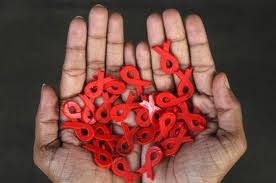The original article can be found in: Antigua Observer By Tameika Malone
ST JOHN’S, Antigua – Founder and Director of the Antigua & Barbuda HIV/AIDS Network said more needs to be done to get and keep HIV/AIDS patients on a treatment regimen where they can be educated on how to suppress the virus.
While speaking on the Big Issues programme yesterday, Eleanor Frederick acknowledged that although the country is doing a good job at testing for the virus, she said persons infected by the disease must be better equipped with the tools to remain healthy.
“We need to get people into treatment and care. We need to maintain them in treatment and we need to make sure it is upgraded, that they are getting the viral load test and the CD4 count and people are becoming treatment literate; that they understand what they can do to suppress the virus,” Frederick said.Fresh from the Global AIDS Conference held in Washington that brought together 24,000 individuals from 183 different countries, Frederick said special emphasis must be placed on preventing the spread of the disease and treatment care where those infected are educated on the importance of adhering to medication instructions.
Frederick said once HIV/AIDS patients are shown how to care for themselves without relapsing into illness then persons are more compliant with the necessary lifestyle changes needed to keep them well.
“The virus will still be in your body but it is not enough to cause you to be sick and for the transmission to be at an elevated level. Once they get to that stage and they see the change, then trust me they get it, and they will do what they have so they are not sick,” she added.Meanwhile, Frederick said there is currently no data available in Antigua & Barbuda to support calls for the decriminalisation of sex work to help combat the disease.
According to statistics, female sex workers have 14 times the risk of contracting HIV than other women of similar ages. In Asia, 14 countries were surveyed and it showed that the risk among the female population was 0.18 per cent, while the sex workers are 29 times more likely to contract the disease with 5.2 per cent being positive.
The sub-Saharan Africa and Latin American Caribbean survey showed that female sex workers are 12 per cent at risk to contract the disease.
However, Frederick said based on the current numbers in Antigua & Barbuda there is no evidence that would lead her to urge government to decriminalise sex work.














